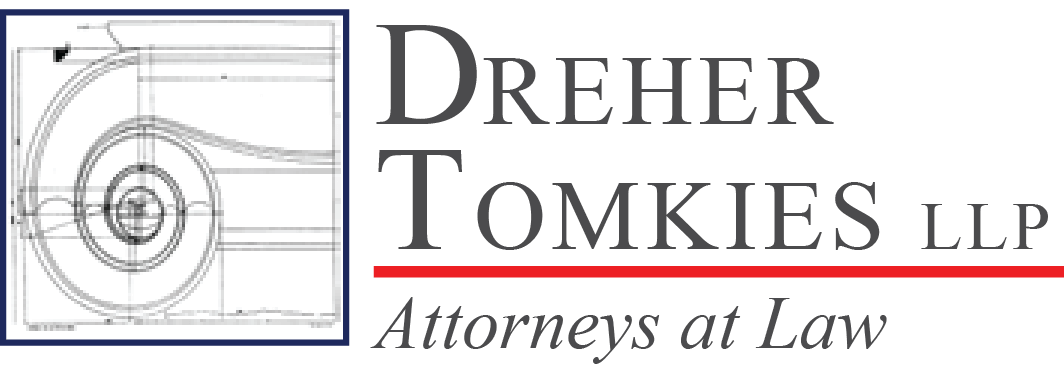On December 12, 2022 the Consumer Financial Protection Bureau (“CFPB”) issued a proposed rule that would require certain nonbank entities falling under CFPB supervision to register with the CFPB after becoming subject to a public written order or judgment based upon violations of certain consumer protection laws. The entities would be required to self-report the applicable order to the CFPB and provide basic identifying and administrative information about the entity as well as information regarding the orders (including copies of the orders). The resulting registry will be made available to the public to mitigate risks to consumers and “unify the efforts of consumer financial protection enforcers.” Read More
Year: 2022
RESERVES AND NATIONAL GUARD UNDERUTILIZE SCRA BENEFITS, CFPB REPORTS
The Consumer Financial Protection Bureau (“CFPB”) released a report revealing that Reserve and National Guard members of the armed forces are not always receiving the benefit of their right to rate reductions under the federal Servicemembers Civil Relief Act (“SCRA”). The CFPB would like creditors to be more proactive in helping servicemembers obtain SCRA benefits. Read More
OHIO GENERAL ASSEMBLY PASSES REGULATORY SANDBOX BILL
The Ohio General Assembly passed S.B. No. 249 to create a regulatory sandbox program for novel financing products and services. The bill requires the Ohio Superintendent of Financial
Intuitions to establish a regulatory sandbox program to enable a person to test novel financial products and services in Ohio on a temporary basis without obtaining a license or authorization that would otherwise be required. Under the new law novel financial products and services are permitted to be tested in the regulatory sandbox for up to two years, with a possible one year extension if the sandbox participant is seeking licensure. Read More
CFPB ISSUES A NOTICE OF INTENT TO MAKE PREEMPTION DETERMINATION UNDER TILA
In response to a written request by the Small Business Finance Association, the Consumer Financial Protection Bureau published a notice of intent to make a preemption determination regarding whether the Truth in Lending Act preempts the New York Commercial Finance Disclosure Law with respect to certain provisions. See our Alerts dated Sept. 29, 2022 and Dec. 14, 2020 for our discussion of the New York law. The CFPB also provided notice that it is considering whether to make a preemption determination regarding state laws in California, Utah and Virginia that are potentially similar to the New York law. See our ALERTS dated June 15, 2022 (California) and May 6, 2022 (Utah and Virginia) for our discussion of these laws. The CFPB is soliciting public comment on the preemption issue. Comments must be received on
or before January 20, 2023. Read More
DOLLAR ADJUSTMENTS TO REGULATIONS Z AND M
The Dodd-Frank Act amended The Truth in Lending Act (TILA) by requiring that the dollar threshold for exempt consumer credit transactions be adjusted annually by the annual percentage increase in the Consumer Price Index for Urban Wage Earners and Clerical Workers (CPI-W). If there is no annual percentage increase in the CPI-W, the exemption threshold from the prior year is not adjusted. The Dodd-Frank Act requires similar adjustments in the Consumer Leasing Act’s threshold for exempt consumer leases. TILA establishes special appraisal requirements for “higher-priced mortgage loans.” The regulations implementing these requirements exempted transactions of $25,000 or less and required that this loan amount be adjusted annually based on any annual percentage increase in the CPI-W. Read More
FTC ISSUES ADVANCE NOTICE OF RULEMAKING ON “JUNK FEES”
The Federal Trade Commission (“FTC”) issued a notice of advanced public rulemaking on so-called “junk fees.” The notice is an early step in the administrative process for drafting a regulation. The FTC is seeking public comments on twenty-one separate questions on various practices relating to the advertisement and disclosure of fees, competition on fees, the extent the fees cover a value-added, consumer perception of fees and how to best write a precise rule governing fees. Read More
MID-SIZED AND COMMUNITY BANK GROUP ISSUES STANDARDIZED BANK PARTNERSHIPS PLAYBOOK
Members of Alloy Labs Alliance, a consortium of midsized and community banks, released its “playbook” for “Banking as a Service” (“BaaS”) relationships between depositary institutions and non-bank financial technology firms. Drafted in partnership with leading technology providers, the Alloy Labs Playbook seeks to establish industry standards and a common vocabulary of buzzwords and common terms. The BaaS business model focuses primarily on banking services other than lending and has been around for over a decade. However, the BaaS industry is still evolving rapidly.
Read More
CA-DFPI TO ISSUE CONDITIONAL DCLA LICENSES IN JANUARY 2023, SAFE HARBOR TO EXPIRE DECEMBER 31
The California Department of Financial Protection and Innovation (“DFPI”) plans to start issuing conditional licenses on January 1, 2023 to debt collectors that have applied under the state’s Debt Collection Licensing Act (“DCLA”). The DFPI also plans to end the regulatory safe harbor allowing debt collectors that have applied for a license to continue to collect consumer debt in California at the same time.
Read More
NYDFS ENTERS INTO CONSENT ORDER WITH EYEMED FOR DATA BREACH
On October 18, 2022, the New York Department of Financialb Services (the “Department”) announced that it entered into a consent order with EyeMed Vision Care LLC for alleged violations of New York’s Cybersecurity Regulation related to a cybersecurity event. EyeMed is licensed to sell life, accident and health insurance in New York by the Department and subject to oversight by the Department.
Read More
UPDATED FTC SAFEGUARDS RULE EFFECTIVE DECEMBER 9, 2022
On December 9, 2022, certain provisions of the updated FTC Safeguards Rule will take effect. The provisions of the updated Safeguards Rule mentioned below were adopted in December of 2021 but are not effective until December 9, 2022, to allow time for compliance. The Safeguards Rule is applicable to “financial institutions,” which include non-bank financial institutions like non-bank lenders and companies acting as a finder along with other entities engaged in activities financial in nature or incidental to such financial activities.
Read More

